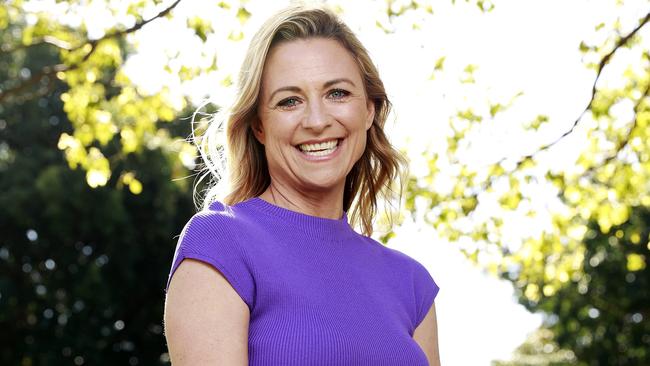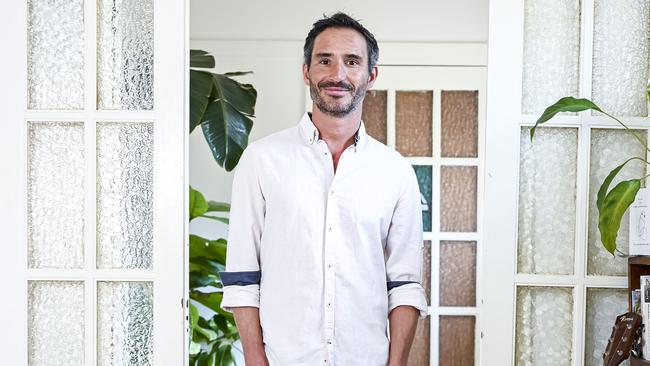Mortgage cliff coming for many: here’s how to handle it
Expiring fixed-rate home loan deals will severely sting many borrowers this year, but acting now can help ease the pain.
SmartDaily
Don't miss out on the headlines from SmartDaily. Followed categories will be added to My News.
A “huge number” of fixed-rate mortgages will expire in 2023, smashing the mortgage repayments of borrowers – but there are things they can do now to help deal with the financial pain.
This looming mortgage cliff has been a threat since the Reserve Bank of Australia started increasing interest rates in May 2022 then lifted them every month until December, and crunch time is coming fast for fixed-rate loans reverting to sharply higher variable rates.
In 2020 and 2021 many Australians signed up for ultra-low fixed rates near 2 per cent, well below current variable rates around 5 per cent and typically for terms of two or three years.
Mortgage broker Finspo’s CEO, Angus Gilfillan, says a large portion of borrowers have not felt the impact of the RBA’s 3 percentage points of rate rises during 2022, and many will face home loan repayments instantly rising up to 61 per cent.
“It’s a huge number – 46 per cent of all fixed rate loans, 16 per cent of all mortgages, are expected to expire in 2023,” he says.

GREAT RATES GONE
“Once someone’s fixed rate expires, their bank won’t be giving them the same great rate they currently have with the market as it is right now.
“The bank may not even roll them onto the most competitive variable rate that they’re offering new customers, which really hurts.”
Gilfillan says borrowers facing the mortgage cliff should:
• Figure out what their rate and repayments will be when the fixed term expires, so they can mentally prepare. Online calculators can help with this in less than 60 seconds.
• Speak with a mortgage broker three months before the fixed rate expires to assess options and plan the next move.
• Consider refinancing, requesting a better deal from your current lender or switching lenders.
“There are a lot of lenders right now who are offering cashback if you make the switch to them,” he says.
“This could be a big win, but before you make the switch, check the cost of switching lenders, and the fine print.”
FEBRUARY RISE LOOMS
Ratecity.com.au research director Sally Tindall says the Reserve Bank is likely to continue lifting rates this year, almost certainly starting in February following stronger-than-expected inflation data released last week.
“For anyone who has not had their head in the game, the cliff will come as an almighty shock,” she says.

Borrowers should do their research and canvas their options at least two months before their fixed rate ends, Tindall says.
“Doing nothing is probably the worst thing you can do,” she says.
“Make extra repayments now. Call your bank, find out what rate you will roll onto, work out the mortgage rate and start to make that repayment now.”
This will give you confidence you can handle the looming increase, and also build a financial buffer in your home loan, Tindall says.
“If you can’t make those repayments, it gives you time to start making significant changes to your lifestyle and your budget now and start having conversations with your bank.”
People who own at least 30-40 per cent of their home are in a strong position to bargain for a better deal as a refinancing boom is underway with banks battling for new customers, Tindall says.
Right now, any interest rate under 4.7 per cent is competitive and under 4.5 per cent is a “cracking rate”, she says.
“Get advice, even just to work out your options. A broker is a good place to start, but shouldn’t be the beginning and end of your research.”

“FREAKING OUT” ABOUT RATE DOUBLING
Homeowner Ben Adams has a three-year fixed-rate deal ending this year and says “it’s made me feel pretty sick watching it creep up knowing that’s where I’m going to be”.
“Knowing that my mortgage rate will likely double in six months is freaking me out,” he says.
“Everyone has a different opinion about where rates are going, which adds to the confusion and stress. I found it a bit overwhelming so then didn’t do anything about it earlier when I probably should have acted to get a better rate. But I’m onto it now.”
Adams recommends shopping for a mortgage, with new digital banks delivering “some great offers”.
“My advice would be to start now and let a mortgage adviser do the hard work for you. They understand it better than I do so I’m happy for them to do the hard work.”





